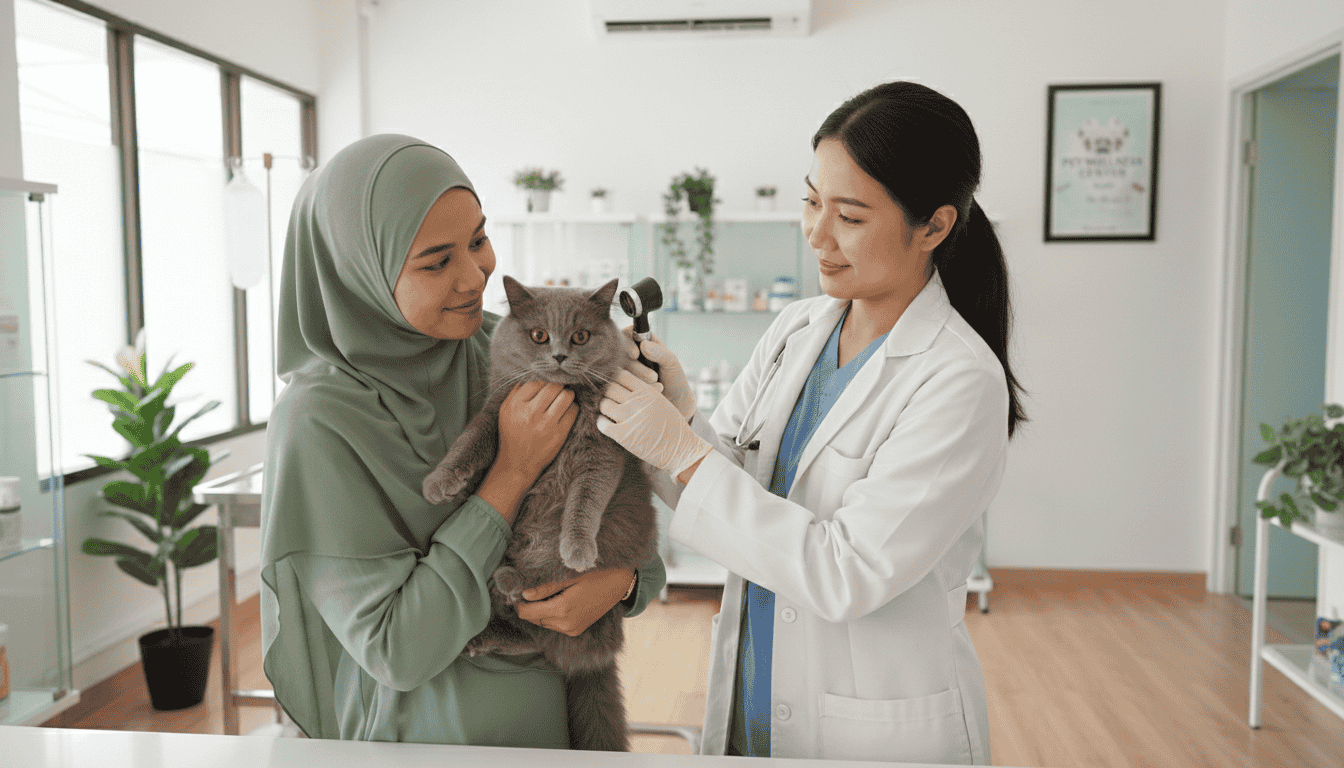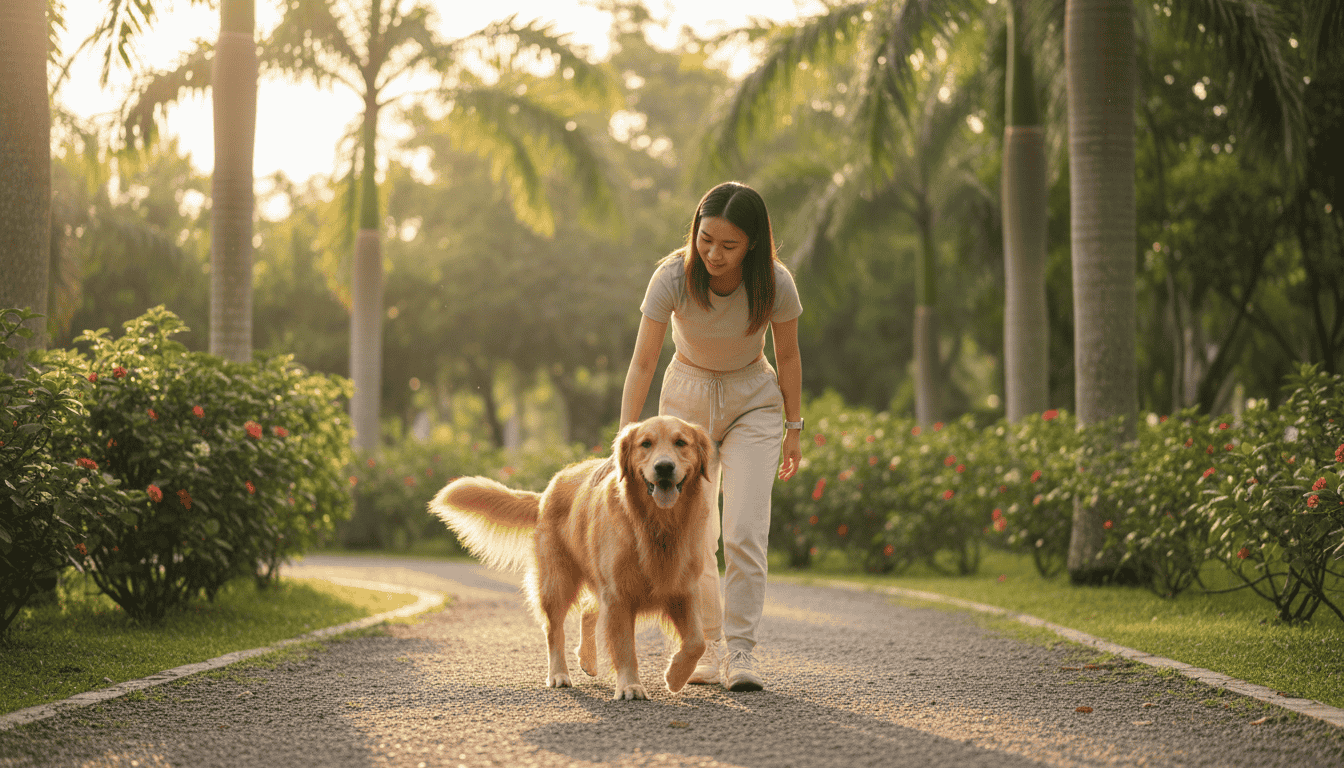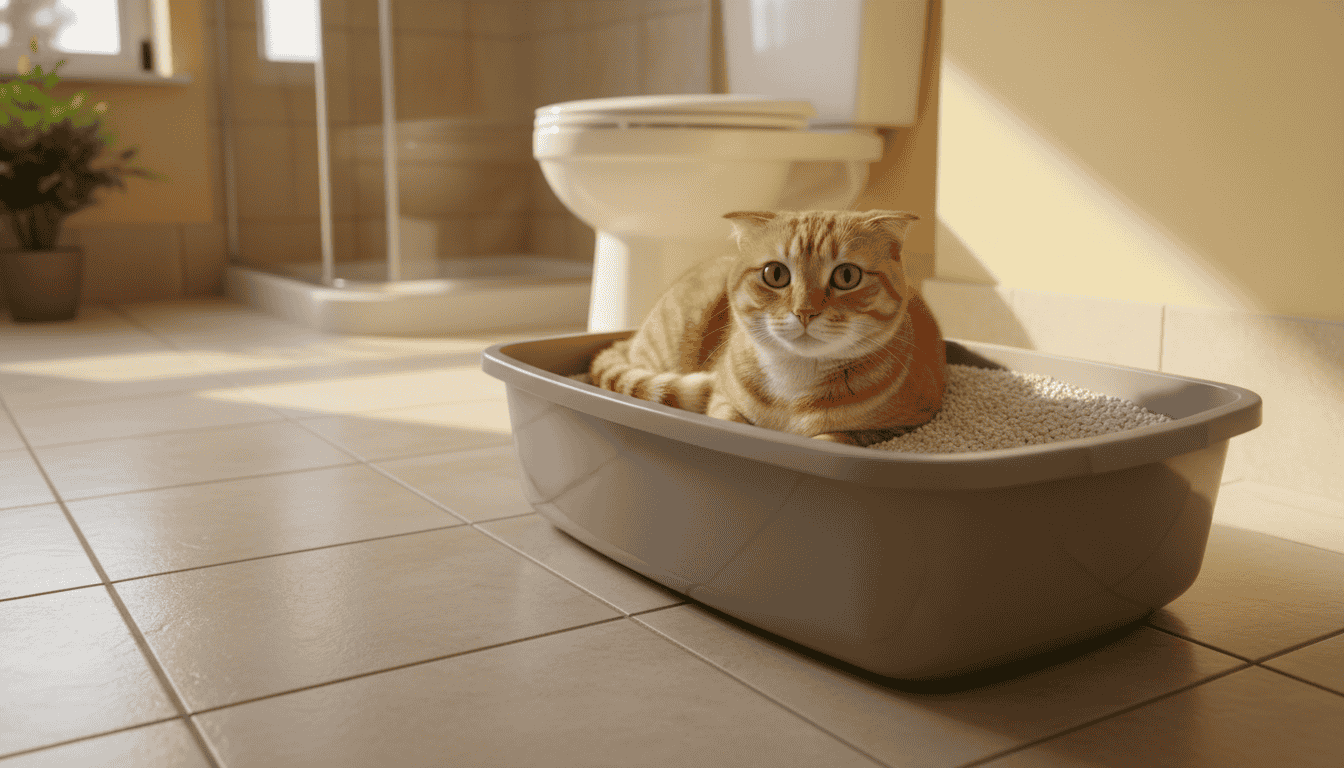Feeding your dog may be a slippery slope—too little might cause malnutrition, while too much could cause obesity. That being the case, you need to find the right balance in feeding your dog (even when it’s tough to resist their puppy eyes).
As dog parents, we always want to give our pets the best. But this doesn’t always mean more food!
How and when should we feed our furbabies?
Here’s the Retriever-guide-in-malaysia">Ultimate guide for you on how much to feed a pup to get you started!
How much should a puppy eat?
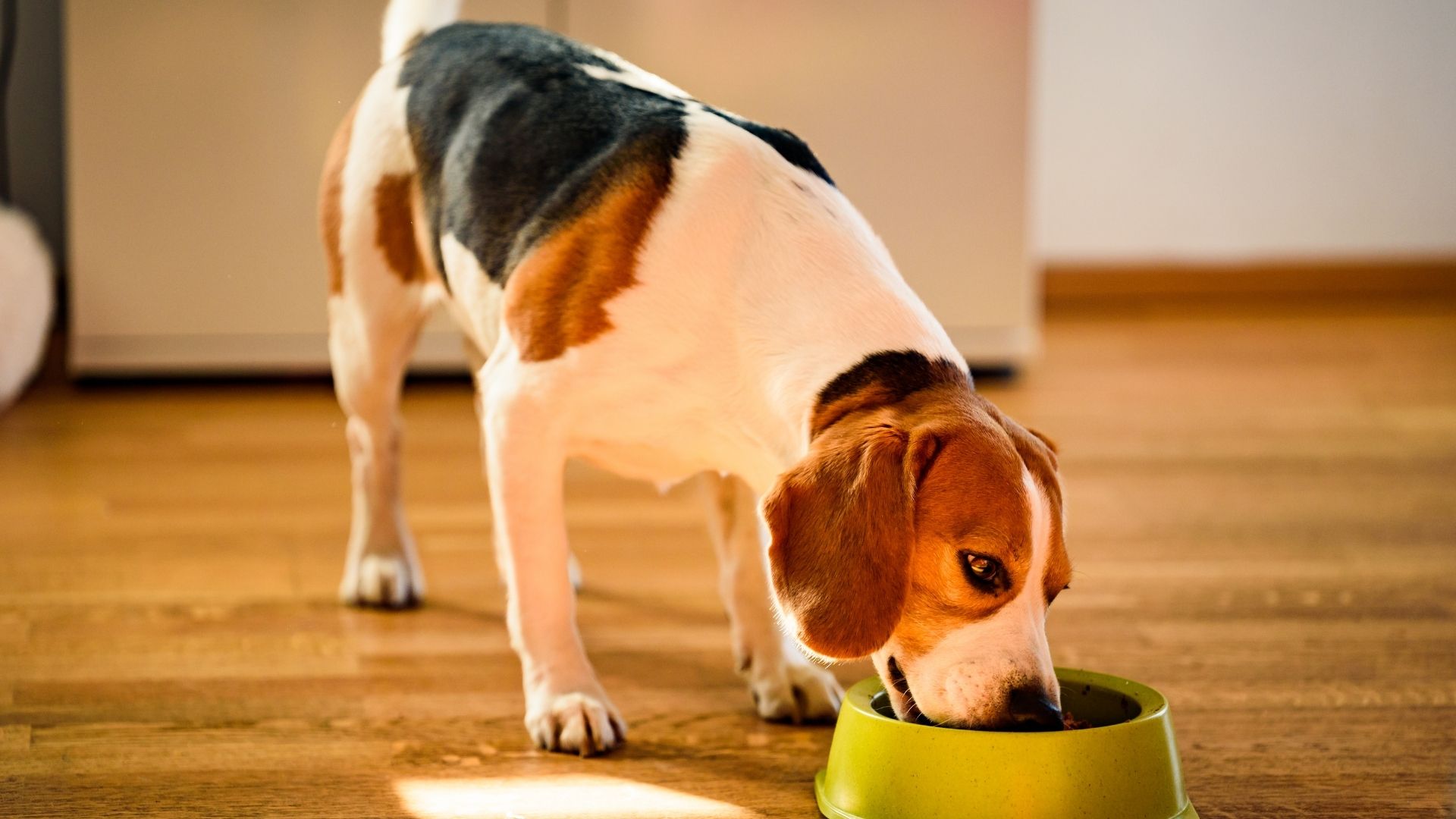
Eating is the primary source of energy for dogs. So, your dog's daily intake should match its daily energy expenditure. The standard formula for calculating the energy requirements of the average adult dog is as follows:
Daily caloric needs = 70 x (Body Weight in kg)3/4
Your local Malaysian vet will be able to estimate how many calories your dog needs daily based on a couple of factors.
Age and breed size
Firstly, age and breed size influence the energy it requires daily. Puppies (below 24 months), particularly, grow at fast rates, demanding higher food intake than adult dogs.
Apart from that, smaller dogs have a higher body surface area (BSA), causing them to lose more heat. Therefore, higher amounts of calories are required to maintain their body heat compared to large dog breeds.
Lifestyle of the dog
Secondly, the lifestyle of your dog matters too. Highly active and outdoor dogs need greater amounts of food to make up for all the calories they would've burnt throughout their day.

On the other hand, Malaysia" target="_blank" id="">spayed or neutered dogs might need lesser amounts of food to avoid the risk of weight gain.
Lastly, know the Malaysia" target="_blank" id="">type of food you're feeding your dog. Proper nutrition is essential for dogs to grow healthily. However, a balanced diet will not look the same for all dogs; it's not a one-size-fits-all matter. Choose dog foods (wet or dry) with high-quality ingredients and specialized diet formulas to lead to a better health outcome.
How many times should I feed my puppy in a day?
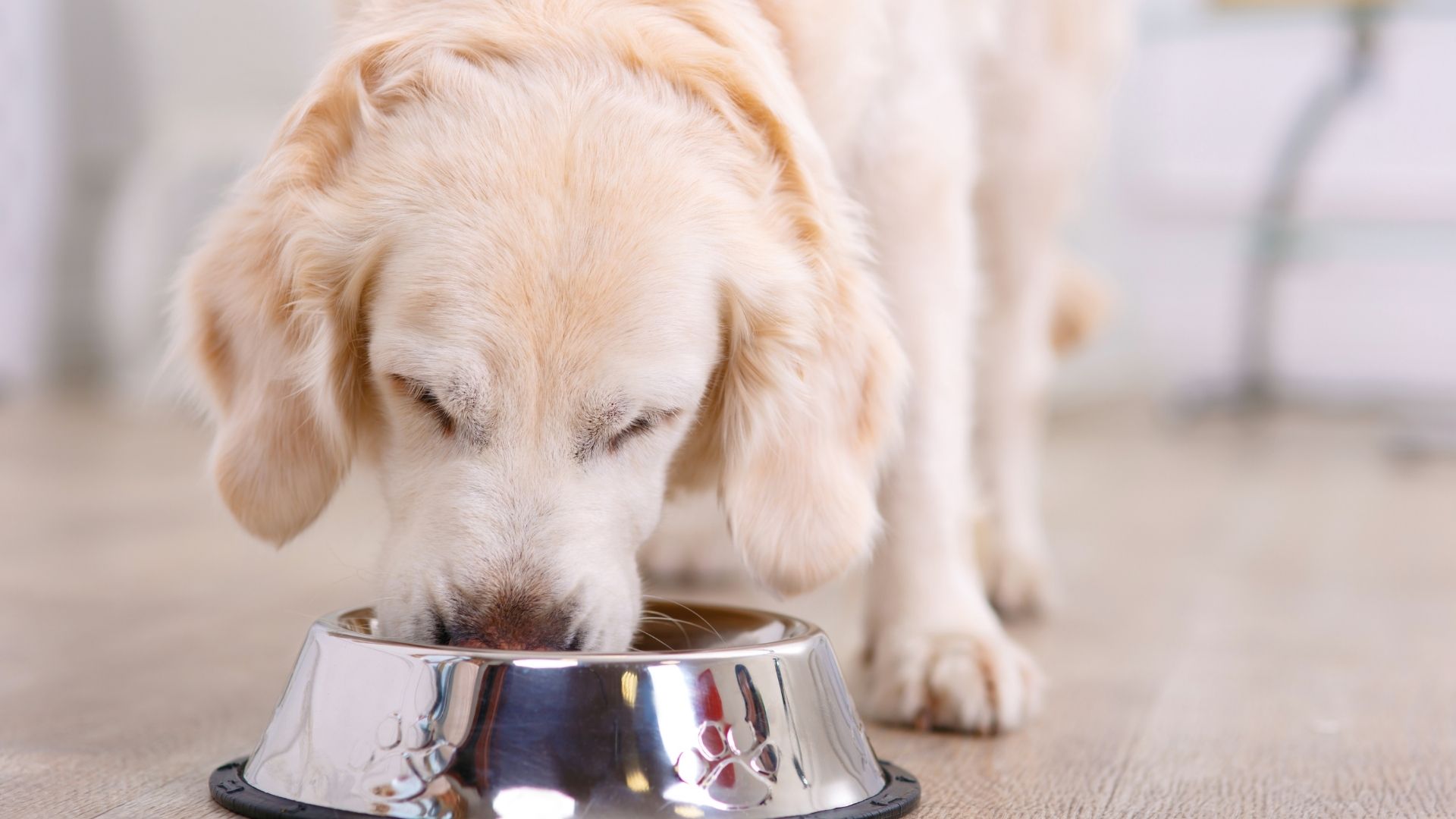
"How often should I feed my puppy?" is a common question amongst dog parents. The simple answer is two to three times a day. Take the total calories your dog needs and divide it into two or three smaller meals.
Make sure to feed your dog at regular intervals throughout the day too.
Please note that feeding a single large meal to your dog is not recommended. This is because large meals will cause bloating and slow your dog's digestion process. It's also easier for your dog to be overfed when left with huge portions of food in its feeder.
Creating a feeding schedule can help you remember to feed your dog routinely. Choose a suitable time of the day for you to feed your dog. You can also choose an appropriate location for your dog to eat every day. This will help your dog familiarize itself with its feeding schedule too.
Here’s an example of a dog feeding schedule you can integrate into your lifestyle:

Note that you should only feed dogs above 12 months of age twice a day. Dogs above 12 months of age are considered mature, requiring lesser energy for bodily development. If your dog always seems hungry, it could be due to a lack of essential nutrients in its diet.
Reassess what you're feeding your dog in terms of nutrition and consult a veterinarian if necessary.
Avoid feeding your dog an hour before letting it outdoors as it may cause bloating, distress and abdominal pain.
Although not stated in the feeding schedule, you can give your dog snacks or treats in between meals. That said, make sure not to overdo it as it may lead to unhealthy weight gain.
If you won’t be home at all throughout the day, investing in a good automatic food dispenser or feeder for your pup is a great option to consider!
How many calories does my puppy need?

Maintaining your pet at its ideal body weight can be challenging, but it's crucial to ensure long-term well-being. Here's a simple table on how much you should feed a puppy by its weight (kg).

Alternatively, you can also use the Dog Calorie Calculator to determine the right amounts of calories you should feed your dog based on its ideal weight and activity level.
However, if you're hoping for your dog to gain or lose weight, you should adjust the daily calories intake accordingly. The advised kcal/day above will no longer be applicable for your dog in this case. Hence, the best option is to go down to any local vet clinic to get expert advice.
Book your first vet consultation on us! Check your pet’s eligibility for Oyen Insurance and get in touch with us to explore options to insure your pup.
What should I feed my dog when it has an upset stomach?
Stomach upset could stem from various reasons—a sudden change in diet, infections or blockage in the gastrointestinal system. Feeding your dog with an upset stomach may be challenging because it may have reduced appetite.

Firstly, you can feed your dog a bland diet that's low in fat. This is because a plain meal is more easily digestible. Hence, your dog's gastrointestinal system will not require excessive digestion processes, which may worsen intestinal discomfort.
Secondly, you can feed specially formulated dog food for sensitive stomachs. These dog foods promote gastrointestinal health with highly digestible proteins and prebiotics.
Probiotics are "good intestinal bacterias" that aid in healthy digestion and modulate the immune system. Feeding your dog with special diet foods can support its recovery from stomach upset while supplying vital nutrients.
If your puppy's stomach upset worsens or doesn't resolve, we highly recommend double-checking your dog's health with a vet.
What should I feed if my dog is still young?
Like humans, the best source of nutrition for puppies during the early days is mother's milk. That being so, having your puppy nursed and nourished by its mother is ideal. However, formula milk feeding is a healthy substitute in cases where this is not possible.
Puppy milk formulas contain ingredients to support the rapid growth of bones, muscles, cells and tissues. It’s recommended as a replacement to mother’s milk for puppies until 3 to 4 weeks of age.
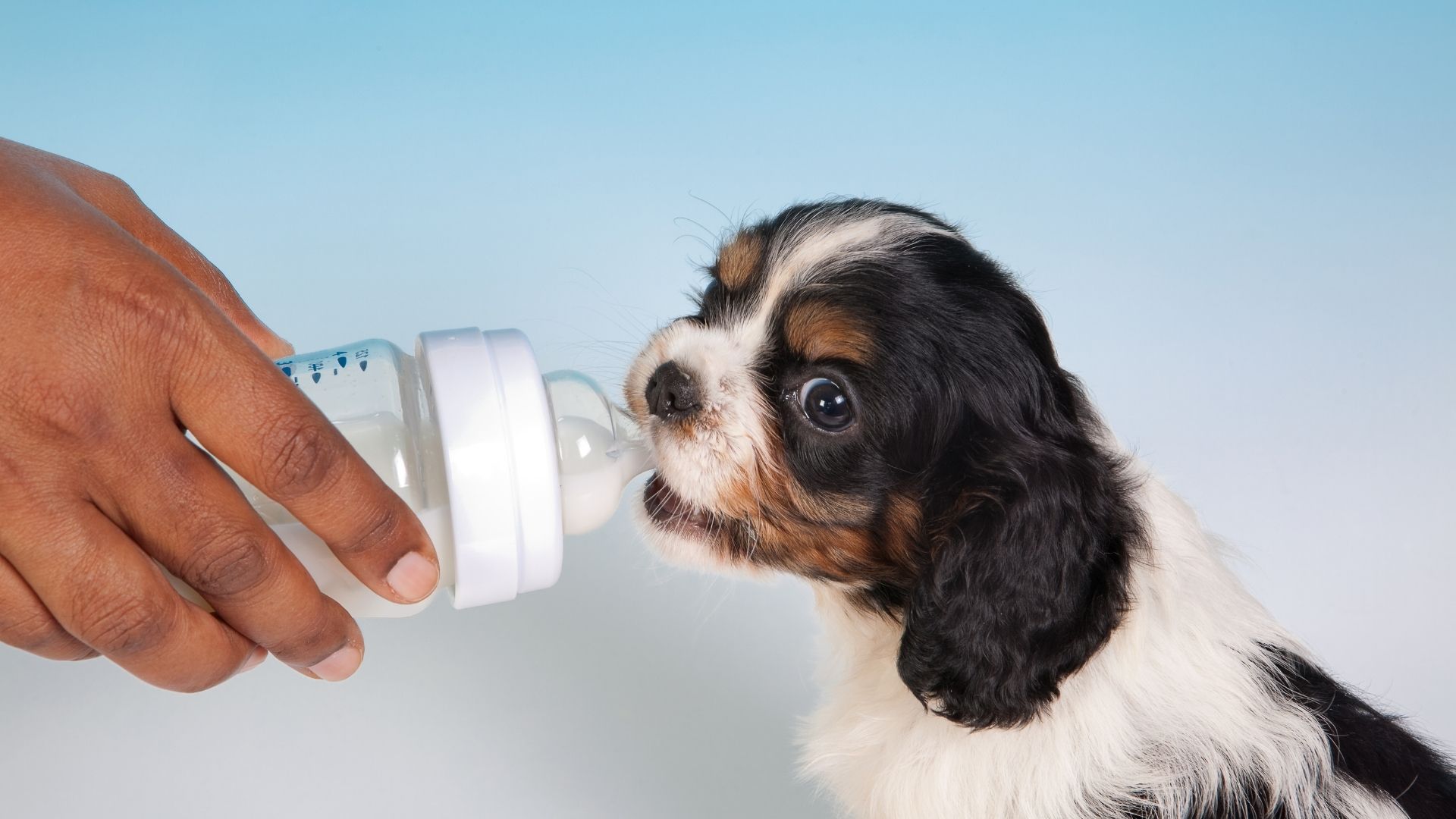
Every milk formula is unique, so remember to check the recommended serving size in its packaging.
When bottle-feeding your puppy, lie them down in a belly-down position on your lap. Then, gently place the tip of the bottle into your puppy's mouth. Place a finger on your puppy's throat to check if it's suckling and swallowing the milk properly.
After feeding, you need to burp your puppy by tapping softly on its back with an open palm. It's also necessary for you to check your puppy's weight daily to track its growth. If your puppy is not meeting its growth target or steadily increasing in weight, meet a veterinarian immediately to get further nutritional advice.
Am I overfeeding my dog?

Overfeeding a dog is just as detrimental as underfeeding it. In most cases, owners don't even realize that they're overfeeding their pup. Crunchy dog treats and chews are often common culprits.
Symptoms of overfeeding my dog
- Restlessness or lethargy
- Swollen abdomen or abdominal pain
- Vomiting
- Flatulence
- Rapid shallow breathing
- Profuse salivation
While overfeeding may not seem problematic at first, it can lead to serious health consequences in the long run.
For example, overfed dogs are at a higher risk of developing heart disease, bowel conditions, diabetes, joint problems, obesity, and arthritis. As a result, the lifespan and quality of your dog's life may be substantially reduced.
Can my puppy eat adult dog food now?

Shifting from milk-feeding or puppy food largely depends on your dog's size, energy requirement, and growth rate.
Most puppy foods are protein-dense and calorie-rich to complement puppies' high metabolism and energy. Therefore, it's essential to note that switching to adult dog food means cutting down on your dog's nutrient supply.
In general, most dogs will require a change in their diet when 6 to 12 months old. Start by mixing small amounts of adult dog food into your pup's usual food. Then, slowly increase the portion of adult dogs while decreasing the puppy food.
Abrupt changes in diet may cause stomach upset, diarrhea, nausea, vomiting or bloating. So remember to take the process of transitioning slowly. When done correctly, it'll take roughly 3 to 5 days for your dog to get used to adult dog food.
Conclusion
Every dog is different, so take time to understand the needs and right amount of food for your dog. Adjusting the calorie intake of your dog might be confusing at the start, but trust us when we say it gets better. If you’re unsure about how much you should be feeding your puppy, consulting a vet would be the safest route to take.












